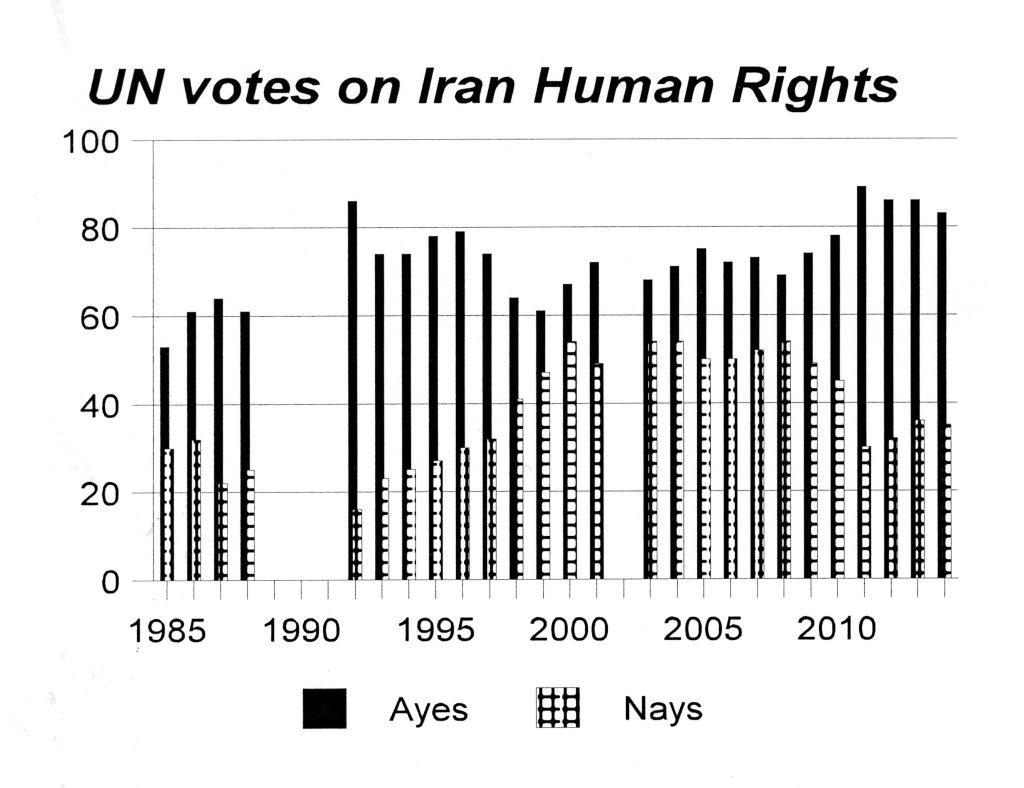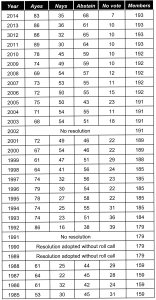December 26-2014
 For the 26th time in 30 years, the UN General Assembly last week approved a resolution condemning Iran’s conduct on human rights as unacceptable.
For the 26th time in 30 years, the UN General Assembly last week approved a resolution condemning Iran’s conduct on human rights as unacceptable.
The vote was 83-35 with 68 countries abstaining. The tally opposed to Iran was slightly lower than in 2011, the worst year for Iran when the vote was 89-30 with 64 abstentions.
The advent of President Rohani does not seem to have had much impact on the vote. Only three fewer countries voted against Iran this year as in the final vote taken when Mahmud Ahmadi-nejad was president.
As the accompanying table and chart show, 2011 was the crucial year. The countries voting to condemn Iran had been running in the 60s and 70s for many years but jumped to 89 in 2011 and have stayed in the 80s for four years straight now.
The number of countries voting with Iran, which reached 54 in 2003 and 2004, has been in the 30s for the last four years.
 As is apparent in the chart, support for Iran rose through the 1990s, remained fairly steady in the first decade of the 21st Century and has now fallen off.
As is apparent in the chart, support for Iran rose through the 1990s, remained fairly steady in the first decade of the 21st Century and has now fallen off.
Iran was one of only three countries condemned for its human rights record this year by the General Assembly. The others were Syria and North Korea. The votes on the resolutions on those two countries were much more overwhelming, however. The resolution on North Korea passed 116-20 with 53 abstentions. It was also a much stronger resolution, asking the Security Council to refer North Korea to the International Criminal Court. The resolution on Syria passed 127-13 with 48 abstentions.
Iran rejected the resolution this year as it does every year. It accused “certain Western countries” of abusing the UN human rights mechanisms and called the resolution biased and unbalanced and based on unreliable sources.
The text was drafted by Canada, which has led the effort to condemn Iran every year since 2003. The text was based on the annual reports prepared by UN Secretary General Ban Ki-moon and the UN’s special rapporteur on human rights in Iran, Ahmed Shaheed of the Maldives.


















